submitted by Karl Koth, VP Social Policy
The Problem
Over the last few months, we have highlighted in the Newsletter what we see as one of the most serious threats to our positions, as well as to the emerging ambience which surrounds our society: the neo-liberal onslaught on the education system, in general.
Just last week President Barack Obama announced his plan to provide the first two years of community college education free to students in the USA. It was but one of his proposals to reduce the socioeconomic inequities that are plaguing our societies in various ways. Obviously this was also a two-pronged attack on ignorance and adversity, and for those reasons the reaction to this proposal has been swift. It was greeted with acclamation by many students too cash-strapped to attend college, but it was also condemned from some obvious forces on the neoliberal Right, as expected.
From my perspective, the reason for the attacks from the Right is transparent. What is most feared is the possibility of an educated population, one especially honed to think critically. It must be an irksome threat to those who would keep populations either incapable of critiquing societal problems, or unearthing the machinations of large corporations. That an educated, critically thinking, mass of people is a threat to the Right, should be as obvious and thus we can understand their continuing attack on education, both at the secondary and the tertiary level.
To put the matter succinctly: a dumbed-down population will put up with a lot more of the invasive, exploitative tactics of the corporate world, than one honed on critical analysis: thus the neo-liberal attacks on our education system.
Scope of the Neo-liberal Assault
For proof that there is indeed an assault on the entire system, that this assault is a pervasive and universal one, we need not look far. It includes the public school system, especially secondary schools, and stretches through the community colleges to universities.
Henry Giroux, (whose articles we have published here from time to time) had this to say about secondary education and the attempt to subsume it under the corporate agenda:
“Neoliberalism…. is also a mode of pedagogy and set of social arrangements that uses education to win consent, produce consumer-based notions of agency and militarize reason in the service of war, profits, power and violence while simultaneously instrumentalizing all forms of knowledge.” See original here.
Further, the following excerpt from an article by Kevin McKay, writing in Academic Matters: Journal of Higher Education, outlines the scale and reasons for the corporate attack on the college system in Ontario:
“As governments in the 1980s and 1990s embraced a neoliberal ideology, a competing vision of the colleges emerged. This new vision emphasized corporate organization, privatization, entrepreneurship, and inter-institutional competition. On today’s college and university campuses, the two visions are locked in conflict. At stake is whether post secondary education continues to fulfill a progressive mandate centered on education as a tool for social justice and change, or whether it succumbs to a neoliberal agenda driven by government austerity and private interest.” See original here.
The Method of Attack
How the attack is being carried out has now become clear to us: attack the very curriculum areas that provide first rank critical thinking, namely the Liberal Arts, and half the job will be done.
David Suzuki , while on his cross-country Blue Dot tour last November, visited the U of M. He spoke about the need to see the environment, not as a specific, isolated, compartmentalized, “niche” issue, but to “enshrine the right to a healthy environment in the Constitution.” And while also criticizing the intrusion of the corporate world into the universities, made inter alia the following remarks concerning the Liberal Arts and their place in the university. Suzuki was interviewed by none other than U of M President, David Barnard.
BARNARD: What would be your perspective on the responsibility- or the possible response by universities to this kind of disintegration, this compartmentalization?
SUZUKI: Universities have enormous potential, it would seem to me. But you see, I got a bachelor of arts degree. At Amherst it was felt that in order to be a fully educated person you had to get a liberal arts degree. So, even though I did an honours degree in biology, I was never allowed to take more than half my courses in science. I had to take courses in literature, in philosophy… To train people with a bachelor of science degree, with maybe one course in English in freshman year, is absurd! People going out and using the most powerful tools humans have ever had and not having any background in philosophy or religion, I mean, I think that’s a failure of our educational system. And to me, the biggest change I thought was the universities going and welcoming corporations and private companies into the university and taking money from the corporations. You just have to go into the department of forestry at UBC to see why environmentalists like me were fighting against the professors. You see all these huge signs that say ‘donations given by’ and all of the [names of the] forest companies. And that’s what the forestry department thinks they’re doing: training people to go out and service the forestry industry. A huge mistake- to bring corporations into universities.
“Conversation with a Visionary,” On Manitoba: Connecting Alumni and Friends of the University of Manitoba, Winter 2014/15, pp. 11-13.
Our (CUPE 3909’s) Response
To further explore these concepts, we have planned a presentation/discussion for February 25th, at 4:00 p.m. in the Marshall McLuhan Room, at which Professor Henry Heller will present ideas relevant to this important topic.
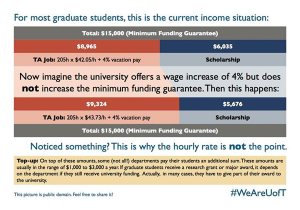

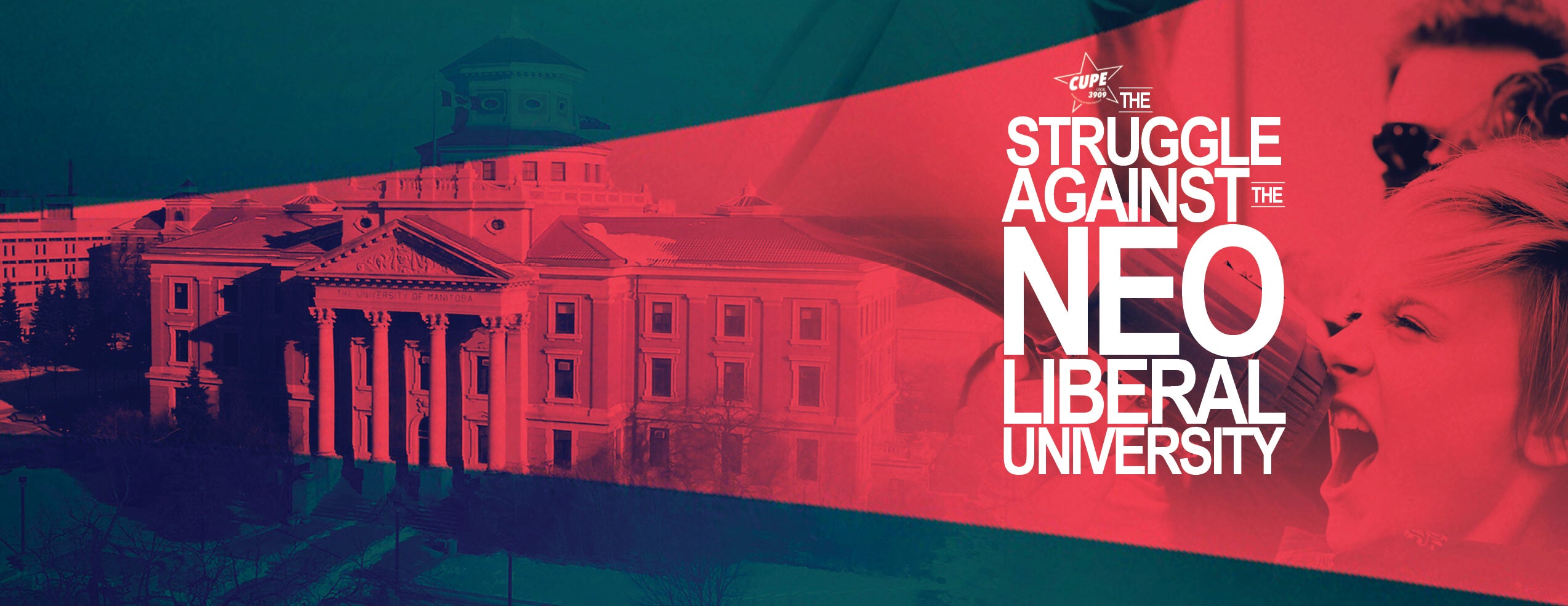

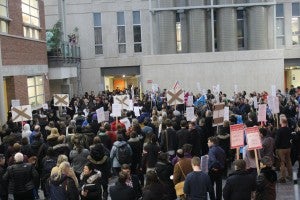

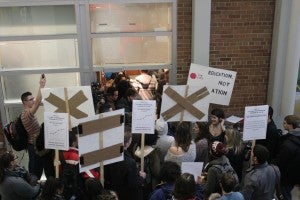
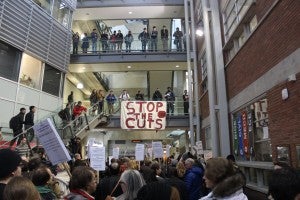



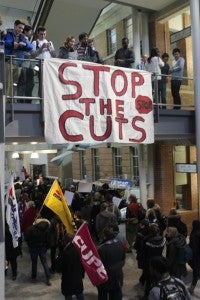
 All over North America, universities are hiring increasing numbers of contract and adjunct instructors. Sessional academic workers are teaching more courses, but most are still working under precarious conditions. CAUT (The Canadian Association of University Teachers) recently held a panel to discuss the rising reliance on contract workers at universities. Read their comments
All over North America, universities are hiring increasing numbers of contract and adjunct instructors. Sessional academic workers are teaching more courses, but most are still working under precarious conditions. CAUT (The Canadian Association of University Teachers) recently held a panel to discuss the rising reliance on contract workers at universities. Read their comments 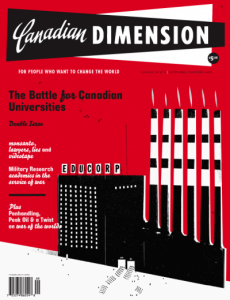 For those interested in a little background, but specifically tied to our own University of Manitoba, the
For those interested in a little background, but specifically tied to our own University of Manitoba, the 
